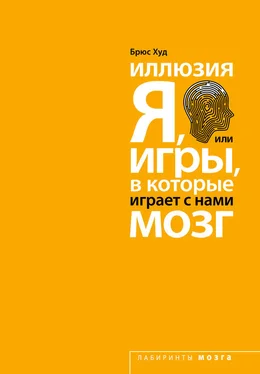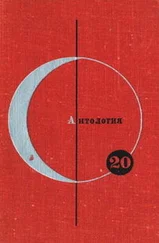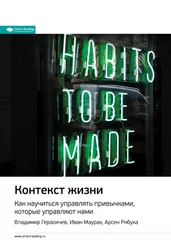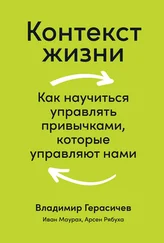T.E. Oltmanns, J.M. Neale and G.C. Davison, Case Studies in Abnormal Psychology (3rd ed., New York, NY: Wiley, 1991).
A.M. Graybiel and S.L. Rauch, «Toward a neurobiology of obsessivecompulsive disorder», Neuron, 28 (2000), 343–7.
Она тоже относится к лобной коре. – Примеч. ред.
M. Field, «Impulsivity, restraint and ego depletion in heavy drinkers», Presentation at the Bristol Psychopharmacology Research Network: Workshop 3, Bristol Institute for Advanced Studies (1 December 2010).
Комедийная мелодрама, на русском языке вышла под названием «Язык нежности». – Примеч. пер.
N.L. Mead, J.L. Alquist and R.F. Baumeister, «Ego depletion and the limited resource model of self-control», in R.R. Hassin, K.N. Ochsner and Y. Trope (eds), Self Control in Society, Mind and Brain (Oxford: Oxford University Press, 2010), 375–88.
R.F. Baumeister, The Self in Social Psychology (Philadelphia, PA: Psychology Press, 1999).
M. Muraven and R.F. Baumeister, «Self-regulation and depletion of limited resources: Does self-control resemble a muscle?», Psychological Bulletin, 126 (2000), 247–59.
J. Rotton, «Affective and cognitive consequences of malodorous pollution», Basic Applied Social Psychology, 4 (1983), 171–91; B.J. Schmeichel, K.D. Vohs and R.F. Baumeister, «Intellectual performance and ego depletion: Role of the self in logical reasoning and other information processing», Journal of Personality and Social Psychology, 85 (2003), 33–46; G.W. Evans, «Behavioral and physiological consequences of crowding in humans», Journal of Applied Social Psychology, 9 (1969), 27–49; D.C. Glass and J.E. Singer, Urban Stress: Experiments on Noise and Social Stressors (New York, NY: Academic Press, 1972).
D. Kahan, J. Polivy and C.P. Herman, «Conformity and dietary disinhibition: A test of the ego-strength model of self control», International Journal of Eating Disorders, 32 (2003), 165–71; M. Muraven, R.L. Collins and K. Neinhaus, «Selfcontrol and alcohol restraint: An initial application of the self-control strength model», Psychology of Addictive Behaviors, 16 (2002), 113–120; K.D. Vohs, R.F. Baumeister, B.J. Schmeichel, J.M. Twenge, N.M. Nelson and D. Tice, «Mating choices impairs subsequent self-control: A limited resource account of decision making, self-regulation, and active initiative», Journal of Personality and Social Psychology, 94 (2008), 883–98.
K.D. Vohs, R.F. Baumeister and N.J. Ciarocco, «Self-regulation and selfpresentation: Regulatory resource depletion impairs impression management and effortful self-presentation depletes regulatory resources», Journal of Personality and Social Psychology, 88 (2005), 632–57.
N.J. Ciarocco, K. Sommer and R.F. Baumeister, «Ostracism and ego depletion: The strains of silence», Personality and Social Psychology Bulletin, 27 (2001), 1156–63.
M.T. Gailliot, R.F. Baumeister, C.N. DeWall, J.K. Maner, E.A. Plant, D.M. Tice, L.E. Brewer and B.J. Schmeichel, «Self-control relies on glucose as a limited energy source: Willpower is more than a metaphor», Journal of Personality and Social Psychology, 92 (2007), 325–36.
I.W. Hung and A.A. Labroo, «From firm muscles to firm willpower: Understanding the role of embodied cognition in self-regulation», Journal of Consumer Research, 37 (2011), 1046–64.
D.R. Carney, A.J.C. Cuddy and A.J. Yap, «Power posing: Brief nonverbal displays affect neuroendocrine levels and risk tolerance», Psychological Science, 21 (2010), 1363–8.
L.W. Barsalou, «Grounded cognition», Annual Review of Psychology, 59:1 (2008), 617–45.
M. Tuk, D. Trampe and L. Warlop, «Inhibitory spillover: Increased urination urgency facilitates impulse control in unrelated domains», Psychological Science, 22 (2011), 627–33.
Название можно перевести как «Трюк эго» или «Уловка эго». – Примеч. пер.
J. Baggini, The Ego Trick (London: Granta, 2011).
H. Rachlin, «Teleological behaviorism and the problem of self-control», in R.R. Hassin, K.N. Ochsner and Y. Trope (eds), Self Control in Society, Mind, and Brain (Oxford: Oxford University Press, 2010), 506–521.
Воздержание от наркотика. – Примеч. ред.
V. Job, C.S. Dweck and G.M. Walton, «Ego depletion – is it all in your head? Implicit theories about willpower affect self-regulation», Psychological Science, 21 (2010), 1686–93.
C.M. Mueller and C.S. Dweck, «Intelligence praise can undermine motivation and performance», Journal of Personality and Social Psychology, 75 (1998), 33–52.
K.D. Vohs and J.W. Schooler, «The value of believing in free will: Encouraging a belief in determinism increases cheating», Psychological Science, 19 (2008), 49–54.
T.F. Stillman, R.F. Baumeister, K.D. Vohs, N.M. Lambert, F.D. Fincham and L.E. Brewer, «Personal philosophy and personnel achievement: Belief in free will predicts better job performance», Social Psychological and Personality Science, 1 (2010), 43–50.
F. Presbrey, «1855–1936. The history and development of advertising», Advertising and Society Review, 1:1 (2000).
Фраза «сублиминальная реклама» была придумана в 1957 году американским исследователем рынка Джеймсом Викари (James Vicary), который утверждал, что смог заставить любителей кино «пить кока-колу» и «есть попкорн» за счет того, что демонстрировал такие сообщения на экране в течение настолько короткого времени, что зрители не успевали осознать их получение. Позже Викари признал, что сфабриковал эти результаты.
J.N. Axelrod, «Advertising measures that predict purchase», Journal of Advertising Research, 8 (1968), 3–17.
Герман Людвиг Фердинанд фон Гельмгольц (1821–1894) – немецкий физик, врач, физиолог. – Примеч. пер.
И Гельмгольц, и Фрейд писали о неосознанных процессах, влияющих на наше поведение: H. von Helmholtz, «Concerning the perceptions in general», in Treatise on Physiological Optics, vol. III, trans J.P.C. Southall (New York, NY: Dover, 1925/1962); S. Freud, The Interpretation of Dreams, trans. A.A. Brill (New York, NY: Macmillan, 1913).
P. Johansson, L. Hall, S. Sikstrцm and A. Olsson, «Failure to detect mismatches between intention and outcome in a simple decision task», Science, 310:5745 (2005), 116–119.
Читать дальше
Конец ознакомительного отрывка
Купить книгу












